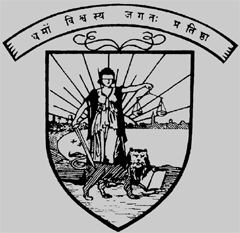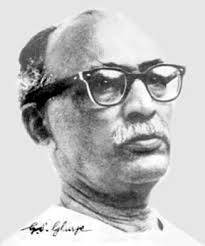Related Research Articles

Mumbai is the capital city of the Indian state of Maharashtra and the de facto financial centre of India. According to the United Nations, as of 2018, Mumbai is the second-most populous city in India after Delhi and the eighth-most populous city in the world with a population of roughly 2 crore. As per the Indian government population census of 2011, Mumbai was the most populous city in India with an estimated city proper population of 1.25 crore (12.5 million) living under the Brihanmumbai Municipal Corporation. Mumbai is the centre of the Mumbai Metropolitan Region, the sixth most populous metropolitan area in the world with a population of over 2.3 crore. Mumbai lies on the Konkan coast on the west coast of India and has a deep natural harbour. In 2008, Mumbai was named an alpha world city. It has the highest number of millionaires and billionaires among all cities in India. Mumbai is home to three UNESCO World Heritage Sites: the Elephanta Caves, Chhatrapati Shivaji Maharaj Terminus, and the city's distinctive ensemble of Victorian and Art Deco buildings designed in the 19th and 20th centuries.

Maharashtra is a state in the western peninsular region of India occupying a substantial portion of the Deccan Plateau. Maharashtra is the second-most populous state in India and the second-most populous country subdivision globally. It was formed on 1 May 1960 by splitting the bilingual Bombay State, which had existed since 1956, into majority Marathi-speaking Maharashtra and Gujarati-speaking Gujarat. Maharashtra is home to the Marathi people, the predominant ethno-linguistic group, who speak the Marathi language, the official language of the state. The state is divided into 6 divisions and 36 districts, with the state capital being Mumbai, the most populous urban area in India, and Nagpur serving as the winter capital, which also hosts the winter session of the state legislature. Godavari and Krishna are the two major rivers in the state. Forests cover 16.47 per cent of the state's geographical area. Out of the total cultivable land in the state, about 60 per cent is used for grain crops in the Deccan region, rice in coastal Konkan, and other high rainfall areas.

Bhimrao Ramji Ambedkar was an Indian jurist, economist, social reformer and political leader who headed the committee drafting the Constitution of India from the Constituent Assembly debates, served as Law and Justice minister in the first cabinet of Jawaharlal Nehru, and inspired the Dalit Buddhist movement after renouncing Hinduism.

Kumudlal Ganguly, better known by his stage name Ashok Kumar and also by Dadamoni, was an Indian actor who attained iconic status in Indian cinema and who was a member of the cinematic Ganguly family.

The High Court of Bombay is the high court of the states of Maharashtra and Goa in India, and the union territory of Dadra and Nagar Haveli and Daman and Diu. It is seated primarily at Bombay, and is one of the oldest high courts in India. The High Court has regional branches at Nagpur and Aurangabad in Maharashtra and Panaji, the capital of Goa.

The Mumbai Police is the police department of the city of Mumbai, Maharashtra. It is a part of Maharashtra Police and has the primary responsibilities of law enforcement and investigation within the limits of Mumbai. The force's motto is "Sadrakṣaṇāya Khalanigrahaṇāya".

The University of Mumbai, informally known as Mumbai University (MU), is a collegiate, state-owned, public research university in Mumbai. It is one of the oldest educational institutes in the city, dating back to the British Bombay era.
Parel is a neighbourhood of Mumbai. Parel used to have a number of textile mills, but these have been replaced by commercial office space development.
The Police Commissioner of Mumbai is the chief of the Mumbai Police. The Mumbai Police Commissioner is appointed by the Maharashtra State Government on the recommendation by the Establishment Board, which includes Additional Chief Secretary—Home department and other senior bureaucrats.
Hormasji "Homi" Maneckji Seervai (1906–1996) was an Indian jurist, lawyer and writer. He is also considered to be a renowned Constitutional expert, and his works are cited popularly in various Indian cases as well as journals.

Sir Pherozeshah Merwanjee Mehta was an Indian politician and lawyer from Bombay. He was knighted by the British Government in India for his service to the law. He became the Municipal commissioner of Bombay Municipality in 1873 and its president four times – 1884, 1885, 1905 and 1911. Mehta was one of the founding members and President of the Indian National Congress in 1890 held at Calcutta.

Soli Jehangir Sorabjee, AM was an Indian jurist who served as Attorney-General for India from 1989 to 1990, and again from 1998 to 2004. In 2002, he received the Padma Vibhushan for his defence of the freedom of expression and the protection of human rights.He is the only person to have held the office of Attorney General of India for two terms.

The Government Law College, Mumbai,, founded in 1855, is the one of the oldest law school in Asia. However Faculty of Law, Agra College, Agra (Estb.1823) is oldest faculty of law in India offering law courses as per year of establishment in the list of approved college by BCI The college, affiliated to the University of Mumbai, is run by the Government of Maharashtra.

Ashok H. Desai was an Indian lawyer, practising in the Supreme Court of India. He held office as the Attorney General of India from 9 July 1996 to 6 May 1998. Earlier, he was the Solicitor General of India from 18 December 1989 to 2 December 1990. He was awarded the Padma Bhushan award and the Law Luminary Award in 2001. He was given an honorary doctorate in "recognition of his contribution to the field of law and jurisprudence" by the North Orissa University in September 2009.
Indigenous tribals have inhabited Mumbai (Bombay) since the Stone Age. The Kolis and Aagri were the earliest known settlers of the islands. The Maurya Empire gained control of the islands during the 3rd century BCE and transformed them into a centre of Hindu-Buddhist culture and religion. Later, between the 2nd century BCE and 10th century CE, the islands came under the control of successive indigenous dynasties: the Satavahanas, Abhiras, Vakatakas, Kalachuris, Konkan Mauryas, Chalukyas, Rashtrakutas, Silharas& Cholas.

The Adarsh Housing Society is a 31-story building constructed on prime real estate in Colaba, Mumbai, for the welfare of war widows and personnel of India's Ministry of Defence. Over a period of several years, politicians, bureaucrats and military officers allegedly conspired to bend several rules concerning land ownership, zoning, floor space index and membership getting themselves flats allotted in this cooperative society at below-market rates.

Govind Sadashiv Ghurye was a pioneering Indian academic who was a professor of sociology. In 1924, he became the second person to head the Department of Sociology at the University of Bombay. And, is widely regarded as the founder of Indian Sociology & Sociology in India.
Dara Nusserwanji Khurody was an Indian entrepreneur known for his contributions to the dairy industry of India. He worked in various private and government organization at the start of his career and also held government official positions later on. He was the Milk Commissioner of Bombay from 1946 to 1952. His name was considered "synonymous with dairying" in India in the 1950s. He received the Ramon Magsaysay Award jointly with Verghese Kurien and Tribhuvandas Kishibhai Patel in 1963 and the Padma Bhushan from the Government of India in 1964.

Dr. Jayadeva Yogendra (1929–2018) was an Indian yoga guru, researcher, author, educator and president of The Yoga Institute, the oldest organized yoga center in the world, founded by Yogendra in 1918. Dr. Yogendra was known for studies on therapeutic effects of Yoga. He pioneered yoga education and has written several books on the therapeutic effects of the ancient science, including Yoga Therapy in Asthma, Diabetes, Heart Disease and Yoga Sutras of Patanjali.
Dr. Hansa Yogendra is an Indian yoga guru, author and researcher and TV personality. She is director of The Yoga Institute in Mumbai, founded by her father-in-law Shri Yogendra. It is a government recognized non-profit organization and the oldest organized yoga center in the world, founded in 1918.
References
- ↑ Organiser, Volume 45. Bharat Prakashan. 1994. p. 28.
- ↑ Dotivala 1990, p. 133.
- ↑ Bombay and Congress President's (PDF). Government of Maharashtra.
- ↑ "Raj Bhavan Archives (A Class Files - Permanent Record" (PDF). Retrieved 12 August 2017.